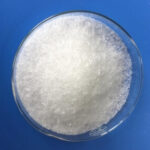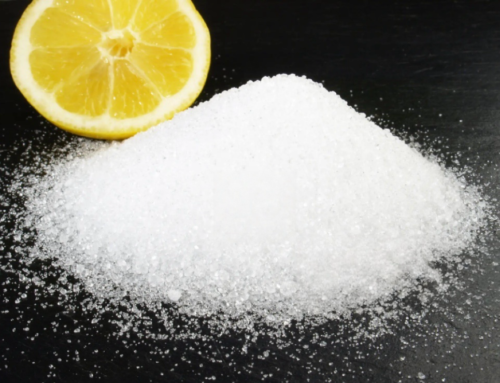 Potassium dihydrogen phosphate (KH2PO4) is an inorganic salt that can also be called potassium phosphate monobasic, monopotassium phosphate, potassium biphosphate, or prim-potassium phosphate. It has a molecular weight of 136.09 g/mol and a chemical formula of KH2PO4.
Potassium dihydrogen phosphate (KH2PO4) is an inorganic salt that can also be called potassium phosphate monobasic, monopotassium phosphate, potassium biphosphate, or prim-potassium phosphate. It has a molecular weight of 136.09 g/mol and a chemical formula of KH2PO4.
Potassium dihydrogen phosphate is a white, crystalline, odorless, and hygroscopic powder that is soluble in water and insoluble in organic solvents. It has a pH of about 4.4 in a 1% aqueous solution. It can be prepared by reacting phosphoric acid with potassium hydroxide or potassium carbonate.
There are several industries where food-grade potassium dihydrogen phosphate can be promoted as a valuable ingredient.
- One industry is the sports and energy drink market. These types of drinks typically contain water, sugar or sweeteners, and electrolytes such as potassium and phosphorus. Potassium dihydrogen phosphate can act as both a source of these essential nutrients as well as a buffering agent to maintain a stable pH level in the drink. By promoting its use in sports and energy drinks, manufacturers can differentiate their products from competitors, appeal to health-conscious consumers, and potentially increase sales.
- Another industry where food-grade potassium dihydrogen phosphate can be promoted is the processed meat market. Many processed meats, such as deli meats and sausages, contain high levels of sodium and other preservatives. However, by using potassium dihydrogen phosphate as a preservative instead, manufacturers can reduce the sodium content of their products while still ensuring that they have a sufficient shelf life. This can appeal to consumers who are looking for healthier options without sacrificing taste or convenience.
- The canned food industry is another area where potassium dihydrogen phosphate can be promoted. Canned fruits, vegetables, and meats often require preservatives to prevent bacterial growth and spoilage. Potassium dihydrogen phosphate is effective at inhibiting the growth of certain bacteria and can therefore serve as a natural and safe alternative to synthetic preservatives. By promoting its use in canned foods, manufacturers can tap into the growing demand for natural and organic products and potentially reach a wider audience of health-conscious consumers.
- Finally, the fertilizer industry is another potential industry for promoting food-grade potassium dihydrogen phosphate. As mentioned earlier, potassium dihydrogen phosphate is often used as a fertilizer in agriculture. It can help to provide essential nutrients to plants and improve their growth and yield. By promoting its use in fertilizers, manufacturers can appeal to farmers and growers who are looking for effective and sustainable ways to improve their crop production.
In conclusion, food-grade potassium dihydrogen phosphate has applications in several industries, including sports and energy drinks, processed meats, canned foods, and fertilizers. By promoting its use in these industries, manufacturers can differentiate their products, appeal to health-conscious consumers, and potentially increase sales.




